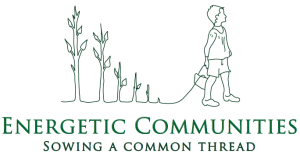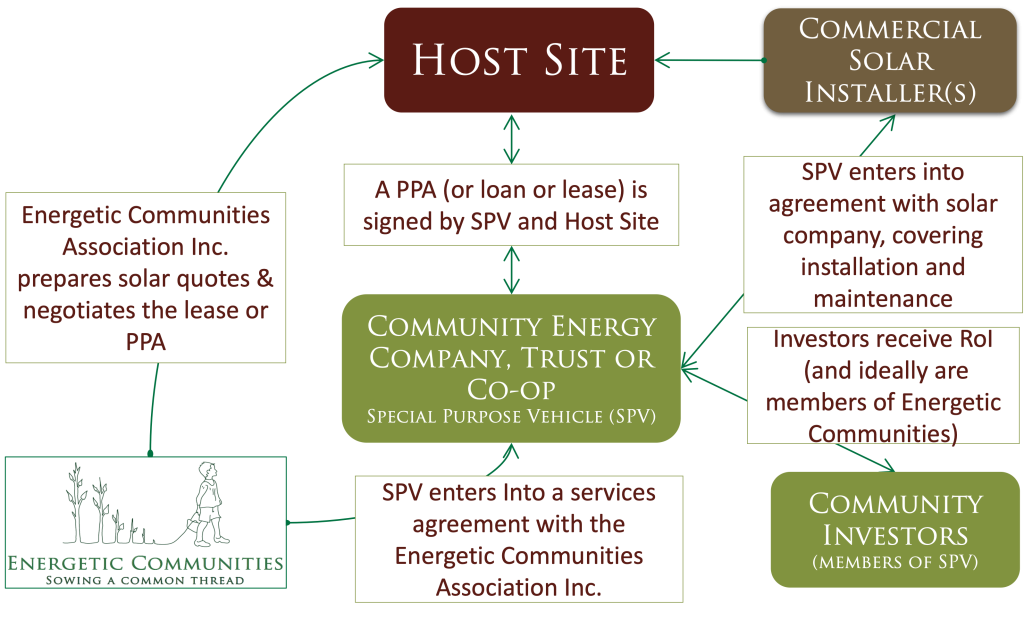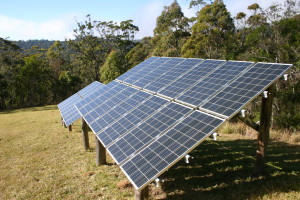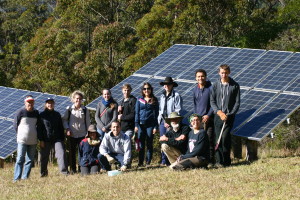
Working for fairer, affordable and sustainable energy for all!
We believe that local energy projects, driven by communities, from households, to social housing, to suburbs and towns, will lead to a fairer and more sustainable energy system. As the energy system transforms, benefits must be accessible and shared by everyone.
The science is also clear. We need to transition to 100% renewable energy by 2030 and decarbonise the entire economy. This transition must be fast and fair, and we cannot wait for politics to catch up to the reality of climate change.
Energetic Communities Association Inc. established a community Energy project on the Food Connect Shed in Sailsbury. Read more about that project here or stay on this page for a general overview of what community energy is all about.
Community Energy in Queensland
Community energy refers to projects where a community initiates, develops, operates and benefits from a renewable energy resource or energy efficiency initiative. Community energy offers the opportunities for communities to participate and benefit in the transition.
Community energy is a broad concept, and can include any community driven energy project, including community owned renewable energy, mini-grids or community scale batteries, community action on renewable energy, energy efficiency or energy projects assisting renters and low-income households. The needs, motivations, scale, legal structures, governance and financing will likely differ by project, group and location.
How It Works
Community Owned Renewable Energy (CORE) is where the community raises funds to finance a renewable energy installation, whether it’s solar, wind, biodiesel or any other renewable energy resource. You can read more in our CORE Briefer (PDF) and Growing Queensland Community Energy (PDF) (written with the Community Power Agency) to see what’s needed in Queensland.

The Energetic Communities Community Energy Model
In our model (above), Energetic Communities will establish a Special Purpose Vehicle (SPV), such as a co-operative, a trust, or a Pty. Ltd. company with democratic principles embedded, comprising of members of the community (Community Investors). As you (Site Owner/Host Site) repay the installation through cheaper electricity bills, the community investors get a return on investment. The means the site owner/host site is not wasting money, not contributing to GHG emissions, while also adding a community benefit. Under some models of CORE, the site owner/host site is ‘gifted’ the installation after 10 years.
For Community Groups, Not for Profits, Local Government and Business
Community Owned Renewable Energy is an opportunity for building owners to purchase cheaper low carbon electricity, offer a broader benefit to the community and be seen to engage positively with the community. Other groups around Australia building similar models include local governments, schools, churches and sports clubs
For the Community
If you neither have the capital or the roof to put on solar, community owned renewable energy allows you to change this, as it provides renters, apartment owners, community groups, businesses and those on a low income with the ability to contribute, own and benefit from renewable energy when they can’t afford or are unable to install their own.

Read this far and still want to know more?
If you want a project you can join immediately check out the Hackstacks Solar Garden
Energetic Communities Association
ABN: 75 927 084 690
Ph: 0413 114 860
Privacy | Take Action | Community Energy | Get Updates

